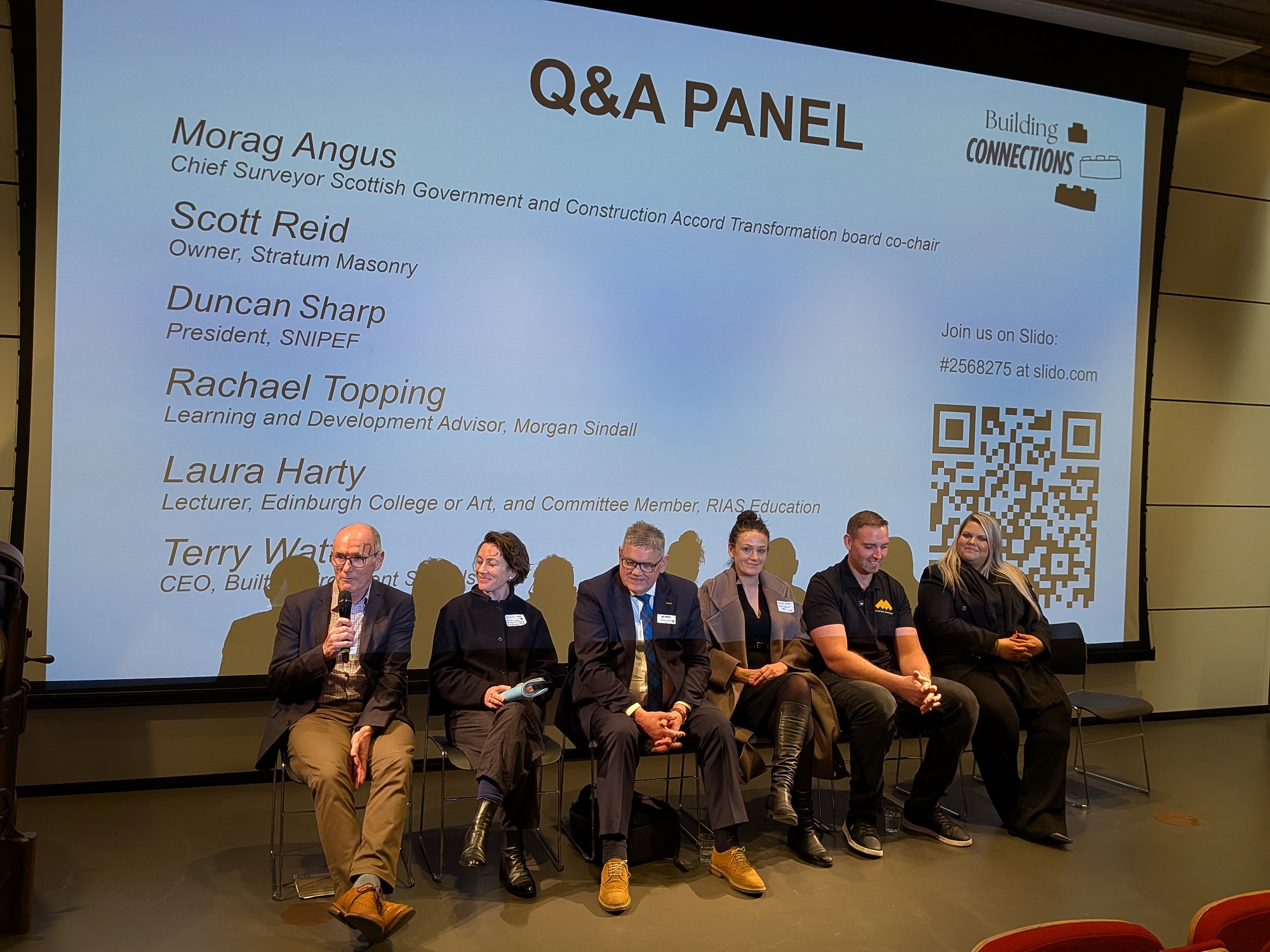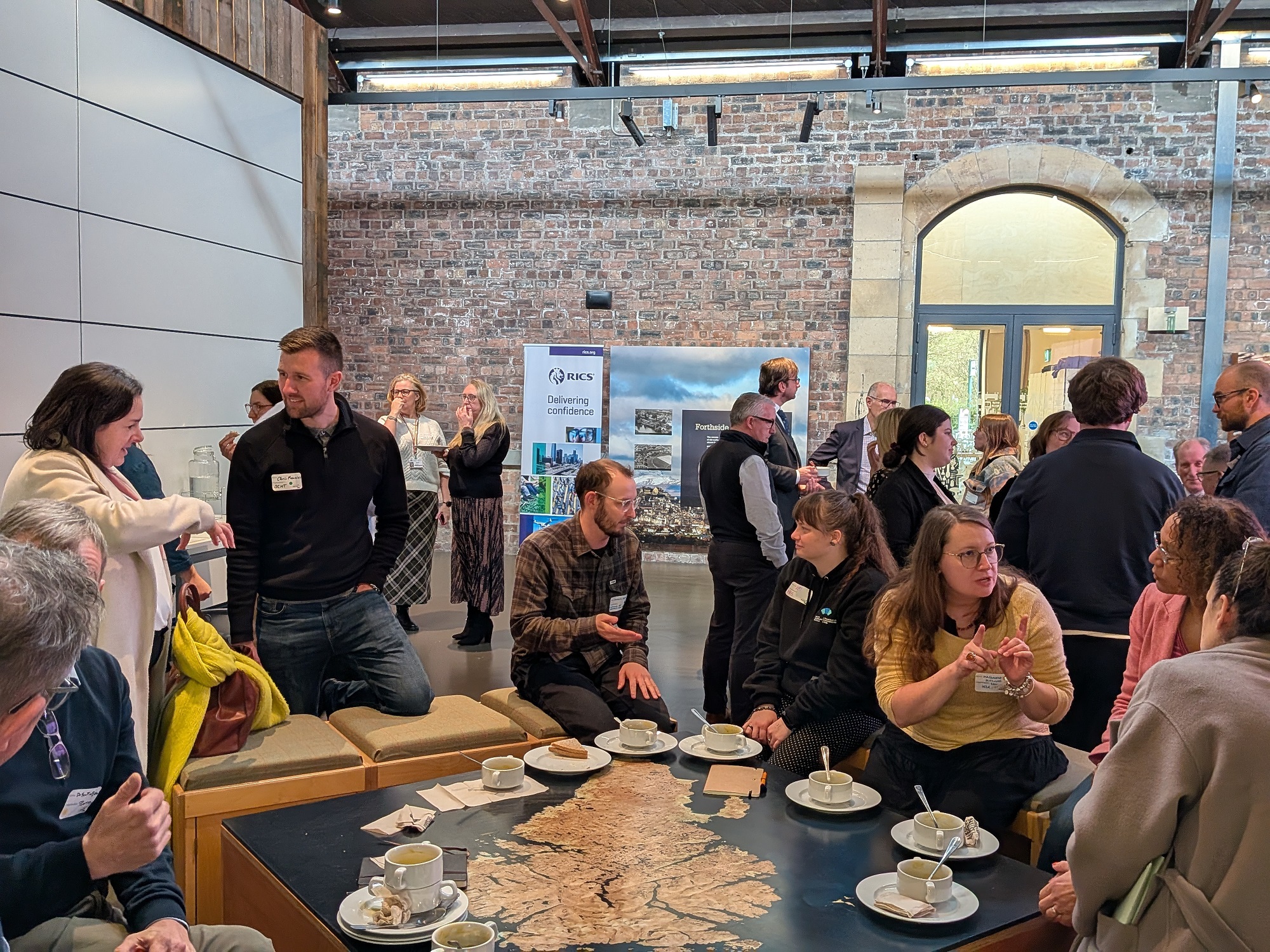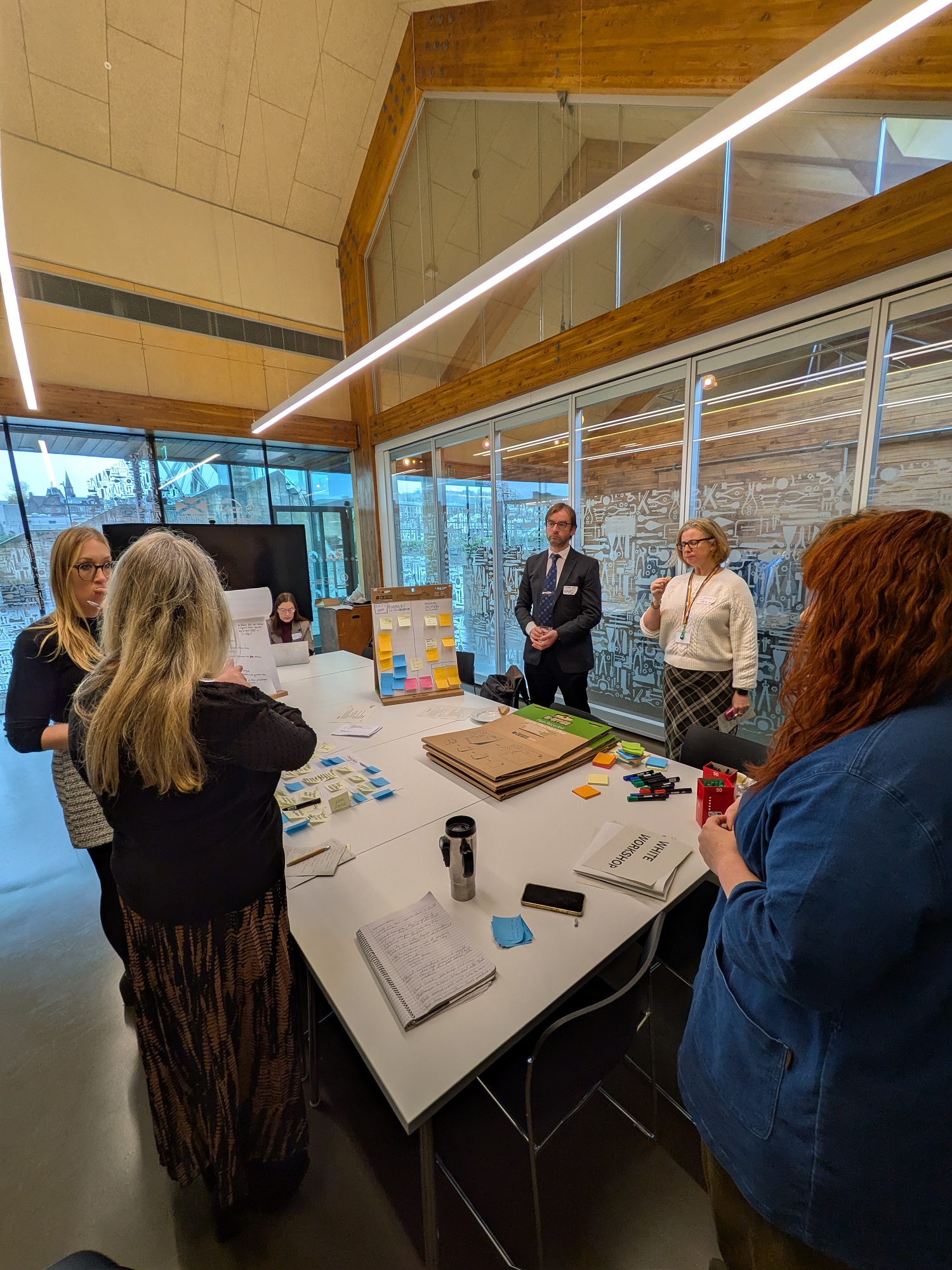Construction industry gathers in Stirling to address skills shortages

In the midst of Scotland’s growing housing emergency, the construction industry faces an urgent challenge: a shortage of skilled workers across trades and professions that threatens the nation’s ability to meet demand.
Without immediate, coordinated action, the sector risks falling short of delivering the homes, infrastructure, and conservation work that communities critically need.
The Skills Investment Plan for the Historic Environment (2023), identified this issue as a priority, calling for stronger collaboration across the industry to secure sustainable resources, provide decisive sector leadership, and stabilise, maintain, and grow specialist technical skills.
To support this collaboration, Historic Environment Scotland (HES), the Built Environment Forum Scotland (BEFS), Chartered Institute of Building (CIOB), Royal Incorporation of Architects in Scotland (RIAS), alongside the Royal Institution of Chartered Surveyors (RICS) came together to help address this collaboration gap in the construction sector, by organising Building Connections: Shaping the Future of Construction.

The sell-out event in Stirling saw guests from across the built environment, including professional bodies, government, academia, charities and trades. With attendees listening to case studies from projects across Scotland, such as The Ridge in Dunbar, as well as a central challenge from Dr Scott McGibbon, director of Pvotal Consultancy, a former stonemason, contractor, lecturer, and researcher, who spoke of his experience of collaboration and how excuses and delay just won’t cut it any longer.
With focus on industry collaboration, skills, and the opportunities and challenges in talent attraction, the event heard about the funding challenges, particularly with complex courses such as stonemasonry, tilling and building surveying, challenges with procurement and the duplication of efforts across the industry. The appetite for collaboration across the construction industry is there, but organisational and institutional structures hamper these efforts.
With the barriers identified, discussions turned to how the industry can overcome these complexities with the likes of procurement reform, increased cross industry learning from higher-education and further-education institutions and reduced focus on specialisms at early career stage to promote the value of transferable skills across the built environment.
Robert Toomey, senior public affairs manager, Royal Institution of Chartered Surveyors (RICS), said: “It was inspiring to see such a diverse gathering at Building Connections, from architects and surveyors to contractors and policymakers, all of whom engaged in in-depth discussions, identifying ways to foster stronger collaboration across the built environment. The challenge now will be to build on this work to cement actual change in the construction industry.

“This is only the start of the conversation, with further events and publications set to stem from the event and the wider Skills Investment Plan.”
Dr Scott McGibbon FCIOB, director of Pvotal Consultancy Ltd, added: “It was an honour and privilege to spark debates and discussions amongst the multifaceted built environment attendees at Building Connections.
“The call was to be bold, be brave and look to push the boundaries, so seeing everyone ‘stepping out’ on the proverbial ‘limb’ was highly invigorating, demonstrating that indeed the industry has the appetite to start building the bridges between people, processes and systems and that there is no sense growing a broken system.”
Dr Jocelyne Fleming, senior policy & public affairs officer – Scotland, Chartered Institute of Building (CIOB), said: “Collaboration has to be more than a talking point if we want Scotland’s construction sector to thrive. The ‘Building Connections’ event showed what’s possible when people from across the built environment come together with openness and a shared purpose. The discussions were constructive and grounded in reality, but above all they showed a genuine willingness to work collectively to make lasting change.”













